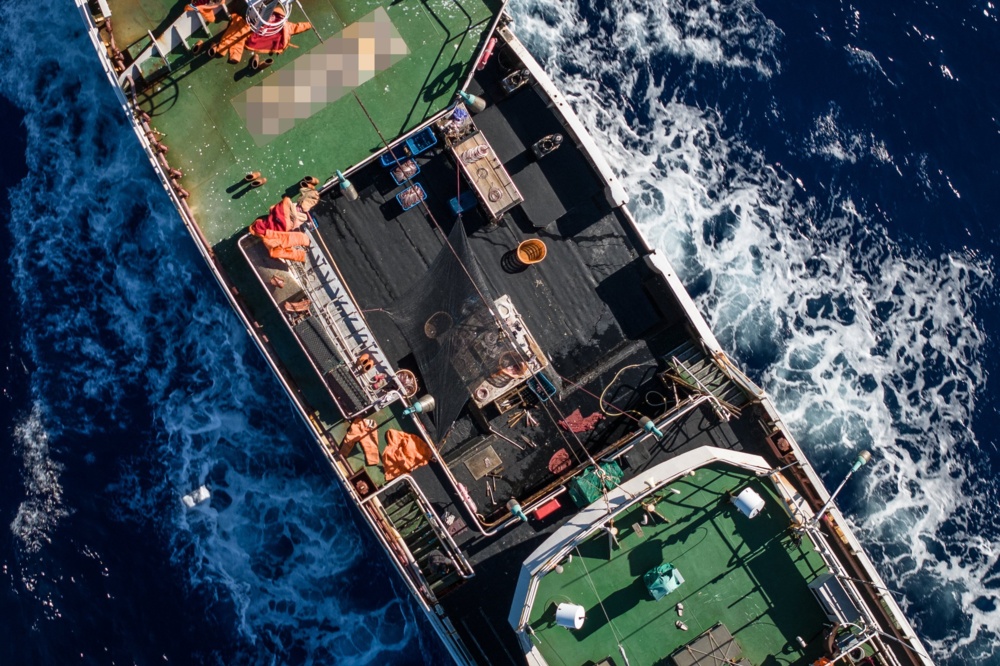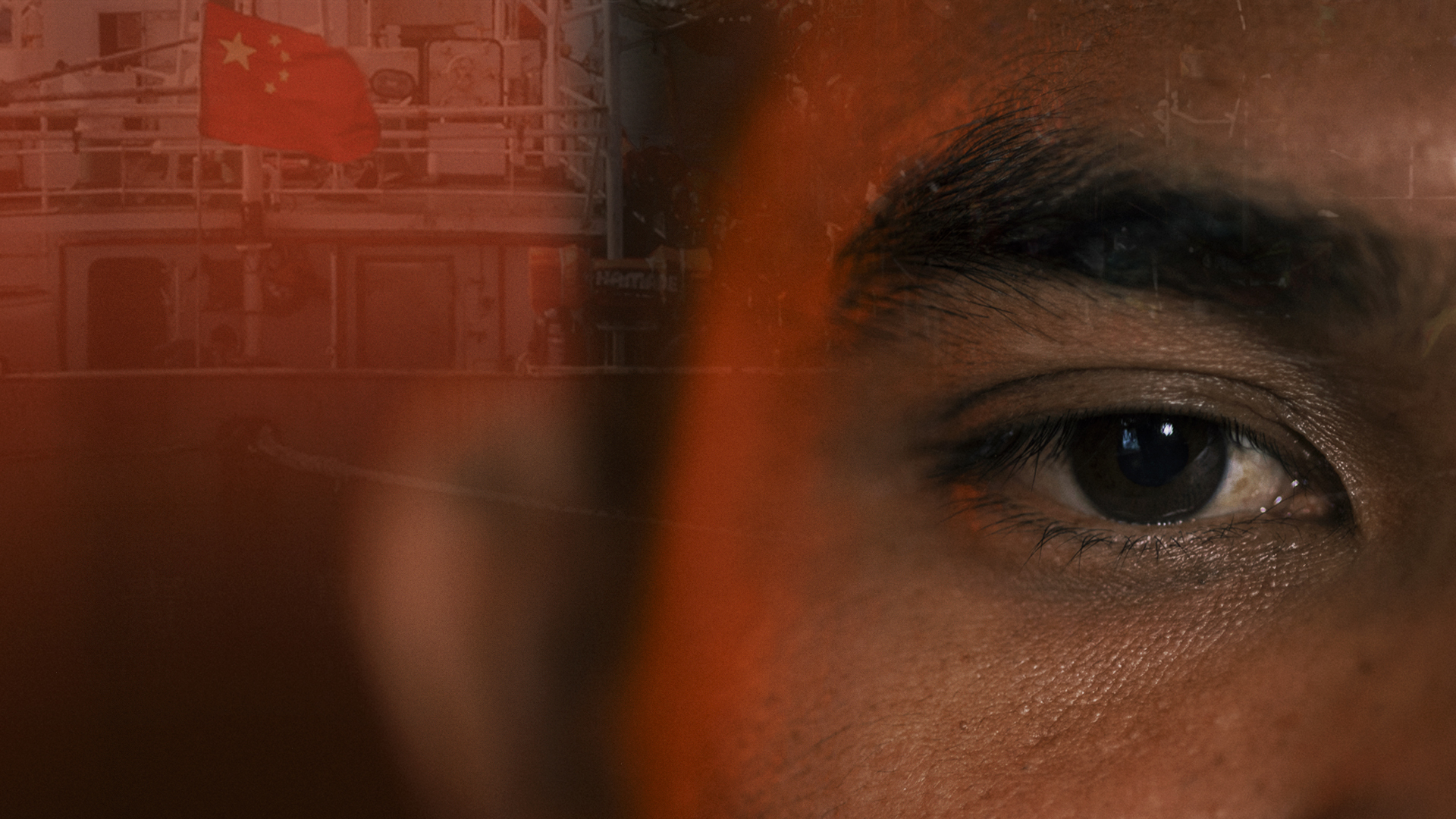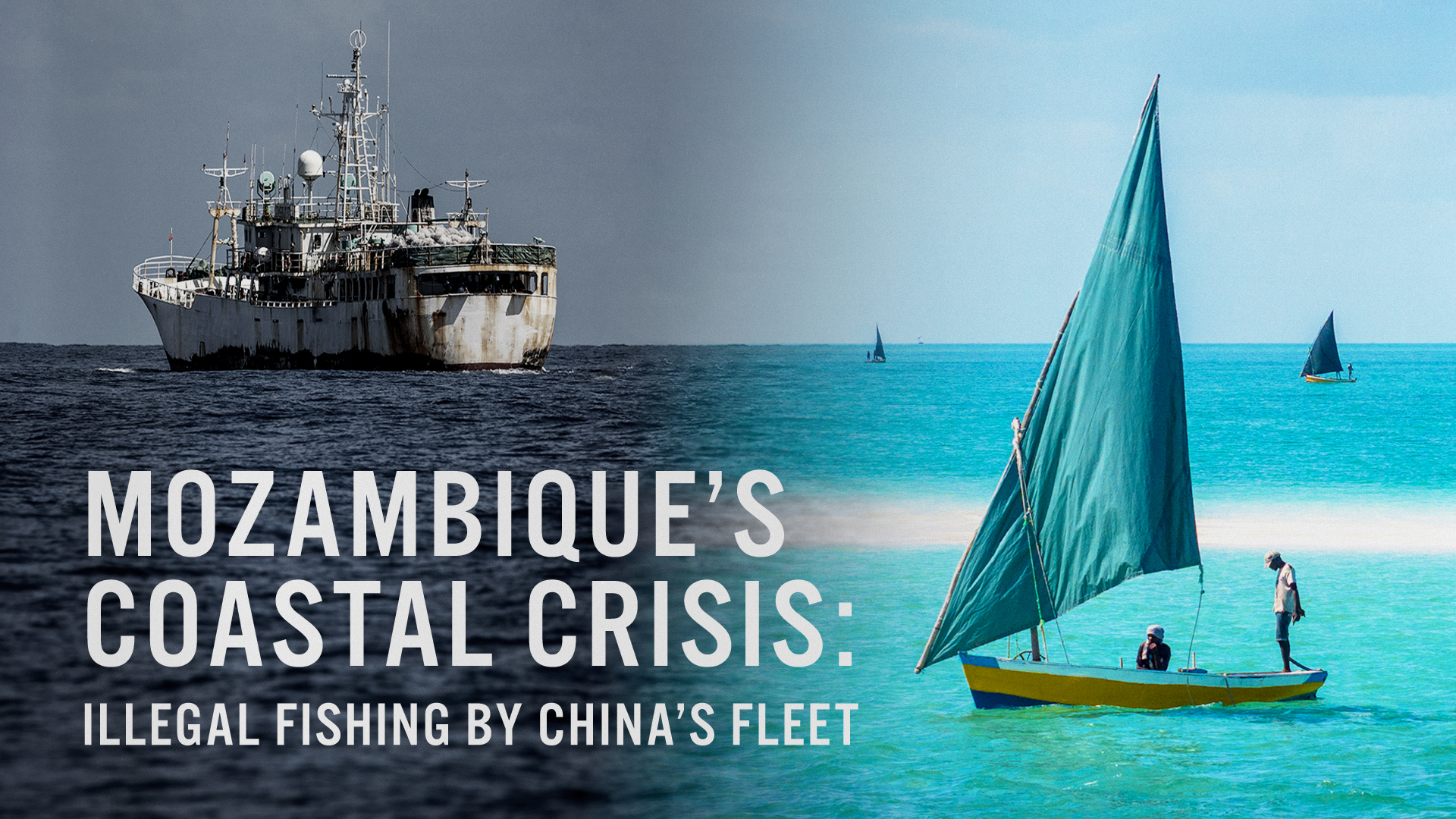
Press release: North Korean forced labour used by China’s tuna fleet in the Indian Ocean, finds new EJF investigation
For immediate release
A new and unprecedented investigation from the Environmental Justice Foundation (EJF) reveals today that a fleet of Chinese tuna fishing vessels operating in the Southwest Indian Ocean reportedly used North Koreans as crew between 2019 and 2024, likely violating UN sanctions. Many were apparently subjected to abuses, including being trapped at sea for up to a decade, on vessels involved in illegal fishing and the killing of dolphins.
EJF identified the presence of North Koreans across 12 tuna longliners operating in the Indian Ocean, based on interviews with Indonesian and Filipino crew who worked on the vessels between March 2019 and June 2024. The use of North Korean crew appears to have bypassed legal frameworks designed to prevent goods produced by North Koreans entering global supply chains.
China is a key destination for North Korean labour, with the country believed to host as many as 100,000 workers, including in seafood processing plants exporting to the EU and US. However, this is the first time North Korean labour has been publicly documented on a distant-water fishing vessel.
The experiences of the North Korean crew, and particularly the number of years they allegedly spent at sea, constitute forced labour of a magnitude that surpasses much of that witnessed in a global fishing industry already replete with abuse.
EJF investigations show that the vessels allegedly using the North Korean labour have potentially supplied seafood markets in the UK, EU and Asia, despite the aforementioned legal frameworks.
The North Korean crew were passed from vessel to vessel, using a method called trans-shipment to prevent them from returning to land. Severe restrictions were placed upon their freedoms, such as not being able to leave the vessels during port visits and not being allowed mobile phones, which both come under the International Labour Organisation’s indicators of forced labour. Testimonies revealed that the Captains were actively concealing their presence on board the vessels. One Indonesian crew member told EJF, “Six Koreans were not allowed to go home even after they completed their four year contract. They were just moved from one ship to another.”
This fleet exists within a broader context of illegal fishing, intentional targeting of vulnerable wildlife and human rights abuses associated with the Chinese fleet in the Southwest Indian Ocean, demonstrated by previous EJF investigations.
Across the 12 vessels using North Korean labour, EJF also identified examples of shark finning, fishing for prohibited species and the capture of marine megafauna, such as dolphins. Alongside restricting the rights of the North Koreans, the crew reportedly experienced physical abuse, verbal abuse and excessive overtime.
This occurred because of multiple failures in fisheries management and port controls, according to EJF. Flag states and Regional Fisheries Management Organisations must collectively and urgently enshrine transparency measures which will materially help combat forced labour at sea, says the NGO.
Steve Trent, CEO and Founder of the Environmental Justice Foundation, said: “The use of North Korean labour on board Chinese fishing vessels is a damning indictment of the failure to regulate our oceans. Illegal fishing and human rights abuses can be found almost without exception on board China’s distant-water vessels. However, the use of North Korean forced labour for such long periods is a particularly severe example of the egregious misconduct uncovered by EJF.”
“The ripple effects of this can be felt far and wide, with the fish caught using this illegal labour reaching seafood markets across the world. China bears the bulk of the responsibility, but when products tainted by modern slavery can be found on our own plates, it is clear that collective responsibility needs to be taken by Flag states and regulating bodies as well. Failure to take the necessary, low- or no-cost steps to end this outlined by the Charter for Fisheries Transparency, from mandatory transmission of AIS signals to the elimination or close monitoring of trans-shipment, means turning a blind eye to extreme, avoidable suffering.”
ENDS
Notes to editors
Read the report here.
Quotes from the report
“The Korean crew are just moved from one ship to another in the middle of the sea; they have been on the ship for 6 years”.
“Everytime we saw them, they looked very stressed [. . .] even six months [at sea] are too long [for me], I would be stressed. I could not imagine it being for years”.
“Give or take seven years, or eight years [the North Koreans had worked on the vessel]. They were not given permission to go home by their government”.
“They were not as free as the Indonesian crew. They went to the store [in Mauritius] one day to buy supplies [. . .] the captain told them that they could only go that one day. Afterwards, they were not allowed to go outside”.
“One of their companions was unable to work because he got a little sick and he was also old. Our bosun shouted at him and said, “What will he do? He’ll just eat? Eat and sleep?”. One Korean replied, the big one, saying that they would work for their colleague because he was getting weak and frail. Our bosun didn't like it, so he yelled and got angry, which made the Koreans angry. The Chinese could not control the Koreans so they were transferred to another ship. It was the sister ship”.
About EJF
Our work to secure environmental justice aims to protect our global climate, ocean, forests, wetlands, wildlife and defend the fundamental human right to a secure natural environment, recognising that all other rights are contingent on this. EJF works internationally to inform policy and drive systemic, durable reforms to protect our environment and defend human rights. We investigate and expose abuses and support environmental defenders, Indigenous peoples, communities, and independent journalists on the frontlines of environmental injustice. Our campaigns aim to secure peaceful, equitable and sustainable futures. Our investigators, researchers, filmmakers, and campaigners work with grassroots partners and environmental defenders across the globe. For more information, please contact media@ejfoundation.org.
SIGN UP FOR OUR EMAILS AND STAY UP TO DATE WITH EJF

